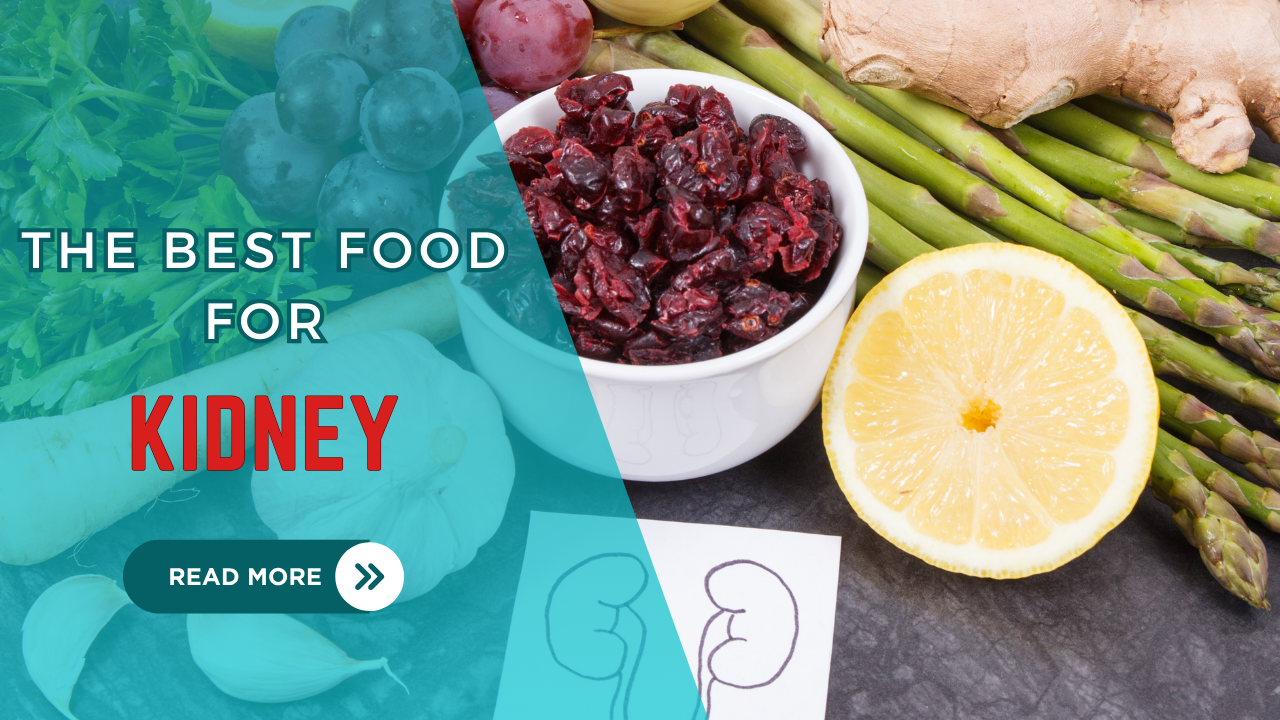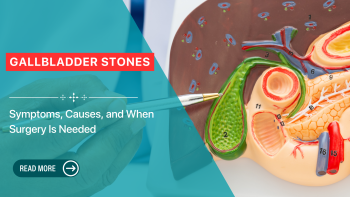Best Food for Kidney Health: Individuals with kidney disease may require adherence to a
specialized nutritional regimen to mitigate kidney deterioration. A renal diet
typically involves restrictions on sodium, phosphorus, and potassium intake.
This dietary protocol does not cure kidney dysfunction but can contribute to
the preservation of renal function.
When renal function declines, waste products, including harmful
substances from dietary sources, accumulate in the bloodstream. Tailoring a
renal diet to regulate specific nutrients can benefit individuals with kidney
disease.
This article delves into 20
highly recommended nutritional foods that experts endorse as integral
components of a kidney-friendly diet, aimed at promoting kidney health.
The Impact of Diet on Kidney
Disease or Renal Health
Dietary restrictions vary
based on the severity of kidney impairment. Patients with advanced-stage kidney
disease face different dietary limitations compared to those with early-stage
disease. Irrespective of the disease stage, the dietary regimen should enhance
renal function while mitigating the risk of further deterioration.
Although nutritional
requirements may differ among individuals, individuals with kidney disease
often need to restrict:
● Sodium intake to below 2
grams per day
● Potassium intake (limits vary
depending on disease stage)
● Phosphorus intake to 800-1000
mg per day
● Protein intake (limits vary
based on disease stage)
Given the interconnectedness
of kidney disease and cardiovascular health, it is advisable to integrate
heart-healthy dietary choices. This includes prioritizing fresh, whole foods
with low saturated fat content.
It is crucial to consult with a healthcare professional
to determine your specific dietary requirements tailored to your stage of
kidney disease.
20 Essential Foods for Optimal Kidney Health
Below
are 20 nutritious foods renowned for their ability to promote kidney health:
Cauliflower
Cauliflower is a
nutrient-rich vegetable containing essential vitamins such as vitamin K,
folate, and dietary fibre. It also boasts antioxidants and anti-inflammatory
properties. Consider substituting mashed cauliflower for potatoes as a
low-potassium side dish.
Nutritional
Content per 1⁄2 Cup of Boiled Cauliflower:
●
Sodium: 9.3 mg
●
Potassium: 88 mg
●
Phosphorus: 20 mg
●
Protein: 1 gram
Blueberries
Blueberries are
packed with nutrients and antioxidants, particularly anthocyanins, which offer
protection against heart disease, diabetes, and various ailments. They are also
notably low in sodium, phosphorus, and potassium.
Nutritional Content per 1 Cup of Blueberries:
●
Sodium: 1.5 mg
●
Potassium: 114 mg
●
Phosphorus: 18 mg
●
Protein: 1 gram
Sea Bass
Sea bass is a rich
source of high-quality protein and beneficial omega-3 fatty acids, known for
their role in promoting overall health, especially in individuals with chronic
conditions. It's important to control portion sizes, as excessive protein intake
can impact kidney function. Aim for 2-3 ounces of meat or fish per meal to
maintain a balanced diet.
The following nutritional values
are based on a 3-ounce serving of cooked sea bass:
●
Sodium: 74 mg
●
Potassium: 279 mg
●
Phosphorus: 211 mg
●
Protein: 20 grams
Red grapes are a
rich source of antioxidant compounds called flavonoids, which are known for
their anti-inflammatory properties and potential to reduce the risk of chronic
diseases. They are low in sodium, phosphorus, and potassium.
Nutritional Content per 1⁄2 Cup of Red Grapes:
●
Sodium: 1.5 mg
●
Potassium: 144 mg
●
Phosphorus: 15 mg
●
Protein: 0.5 grams
Egg whites offer
high-quality protein with low phosphorus content, making them suitable for
kidney-friendly diets. They are a preferable option over whole eggs for
individuals needing to limit phosphorus intake.
Nutritional Content per 2 Large Egg Whites:
●
Sodium: 110 mg
●
Potassium: 108 mg
●
Phosphorus: 10 mg
●
Protein: 7 grams
Garlic adds flavor
without sodium and provides health benefits through its anti-inflammatory
sulfur compounds. It is a good source of manganese and vitamin B6.
Nutritional Content per 3 Garlic Cloves:
●
Sodium: 1.5 mg
●
Potassium: 36 mg
●
Phosphorus: 14 mg
●
Protein: 0.5 grams
Buckwheat, a whole
grain, has lower potassium content compared to other grains. It also offers B
vitamins, magnesium, iron, fibre, and plant-based protein. Moreover, it is
naturally gluten-free.
Nutritional Content per 1⁄2 Cup of Cooked Buckwheat:
●
Sodium: 0.8 mg
●
Potassium: 391 mg
●
Phosphorus: 295 mg
●
Protein: 11 grams
Olive oil is rich
in vitamin E and primarily comprises unsaturated fat. It is phosphorus-free,
making it suitable for kidney diets. The key fatty acid, oleic acid, has
anti-inflammatory effects. Olive oil is suitable for cooking purposes.
Nutritional Content per 1 Tablespoon of Olive Oil:
●
Sodium: 0.3 mg
●
Potassium: 0.1 mg
●
Phosphorus: 0 mg
●
Protein: 0 grams
Bulgur, a
whole-grain wheat product, has lower potassium and phosphorus content compared
to other whole grains. It provides B vitamins, magnesium, iron, plant protein,
and fibre beneficial for digestive health.
Nutritional Content per 1⁄2 Cup of Cooked Bulgur:
●
Sodium: 154 mg
●
Potassium: 48 mg
●
Phosphorus: 28 mg
●
Protein: 2 grams
Cabbage is rich in
vitamins, minerals, and antioxidant compounds. Research suggests it can help
manage blood sugar, reduce the risk of kidney and liver damage, and prevent
oxidative stress and obesity.
Nutritional Content per 1 Cup of Shredded Cabbage:
●
Sodium: 20 mg
●
Potassium: 161 mg
●
Phosphorus: 29 mg
●
Protein: 1.4 grams
Skinless chicken
breast has lower fat and phosphorus content compared to chicken with skin.
However, it is essential to limit portion sizes as excessive protein intake can
stress the kidneys.
Nutritional Content per 1 Cup of Cooked Skinless
Chicken:
●
Sodium: 104 mg
●
Potassium: 358 mg
●
Phosphorus: 319 mg
●
Protein: 43 grams
Bell peppers are
rich in antioxidants such as vitamins A and C, crucial for immune health. They
are very low in potassium, phosphorus, and sodium.
Nutritional Content per 1 Medium Pepper:
●
Sodium: Less than
2.5 mg
●
Potassium: 213 mg
●
Phosphorus: 27 mg
●
Protein: 1 gram
Onions add flavour
without sodium and provide essential nutrients like vitamin C, manganese, B
vitamins, and prebiotic fibre. They are sodium-free and can enhance the taste
of low-salt kidney diet dishes.
Nutritional Content per 1 Small Onion:
●
Sodium: 3 mg
●
Potassium: 102 mg
●
Phosphorus: 20 mg
●
Protein: 0.8 grams
Arugula is a
flavorful green that is low in potassium, phosphorus, and sodium. It provides
vitamin K, manganese, calcium for bone health, and nitrates that help lower
blood pressure.
Nutritional Content per 1 Cup of Arugula:
●
Sodium: 5 mg
●
Potassium: 74 mg
●
Phosphorus: 10 mg
●
Protein: 0.5 grams
Macadamia nuts have
lower potassium and phosphorus content compared to most other nuts, making them
more suitable for kidney diets. They also offer calcium, healthy fats, folate,
magnesium, copper, iron, and manganese.
Nutritional Content per 1 Ounce of Macadamia Nuts:
●
Sodium: 1.4 mg
●
Potassium: 104 mg
●
Phosphorus: 53 mg
●
Protein: 2 grams
Radishes add crunch
and flavour to low-sodium dishes. They are very low in potassium and phosphorus
and supply folate and vitamin A.
Nutritional Content per 1⁄2 Cup of Sliced Radishes:
●
Sodium: 23 mg
●
Potassium: 135 mg
●
Phosphorus: 12 mg
●
Protein: 0.4 grams
Turnips are a good
source of fibre, vitamin C, vitamin B6, and manganese. They can be roasted,
boiled, mashed, or consumed raw, adding nutritional value to salads, soups, and
stews without compromising kidney health.
Nutritional Content per 1⁄2 Cup of Cooked Turnip:
●
Sodium: 160 mg
●
Potassium: 159 mg
●
Phosphorus: 22 mg
●
Protein: 1 gram
Pineapple is a
sweet treat with lower potassium, phosphorus, and sodium content compared to
many other fruits. It provides fibre, vitamin A, and the anti-inflammatory
enzyme bromelain.
Nutritional Content per 1 Cup of Pineapple:
●
Sodium: 2 mg
●
Potassium: 180 mg
●
Phosphorus: 13 mg
●
Protein: 1 gram
Cranberries contain
antioxidant compounds that may prevent urinary tract infections (UTIs) and
kidney infections by reducing bacteria. They are closely tied to urinary and
kidney health and are low in potassium, phosphorus, and sodium. Cranberries can
be enjoyed fresh, cooked, dried, or as juice.
Nutritional Content per 1 Cup of Whole Cranberries:
●
Sodium: 2 mg
●
Potassium: 80 mg
●
Phosphorus: 11 mg
●
Protein: 0.5 grams
Shiitake mushrooms
are a flavorful plant-based meat substitute suitable for vegan and vegetarian
kidney diets. They can also help limit protein intake if necessary and are
lower in potassium, sodium, and phosphorus compared to other mushrooms.
Nutritional Content per 1 Cup of Cooked Shiitakes:
●
Sodium: 6 mg
●
Potassium: 170 mg
●
Phosphorus: 42 mg
●
Protein: 2 grams
Best Food For Kidney Health
Protein Intake:
It should be around 1gm per/kg Per Day for
Normal people, but for CKT Patients it should be around 0.6gms Per kg Per
day.
Calories Intake:
It should be around 30-35 kcal/kg per day.
High Potassium Food:
A person can take potassium food at a limit,
but CKT Patients should avoid it completely.
Low Salt Diet:
A person should take 3-4 gms of Iodized Salt per
Day.
Conclusion
for Maintaining Good Kidney Health
Individuals with kidney problems
should limit their intake of phosphorus, sodium, and potassium. Restricting
protein intake, especially in later stages, is also crucial.
As your dietary needs may change
throughout kidney disease, consult with the Best Doctor in Gwalior provider before making any
significant dietary alterations. They can assist in creating an appropriate
eating plan tailored to your current stage of kidney health.
Numerous delicious foods support kidney health, from sea bass to blueberries, cranberries, and cauliflower. With some adjustments to your diet, it is possible to live well with kidney disease.











